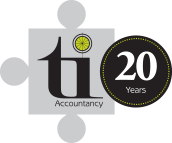If you take out more money from your company than you’ve put in – and it isn’t your salary or a legal dividend (i.e. you take a dividend during the year but it transpires at the end of the year you did not make sufficient profit to take this dividend) – it will be declared as a director’s loan.
The first thing to remember is that you and your company are totally separate, the company’s money is not your money! Therefore, each time you take money out of the company to pay for a personal bill or accidentally use the company’s card to pay for a personal expense etc., this may result in an overdrawn director’s loan account.
HMRC believes an overdrawn DLA provides company directors with an unfair tax advantage because they don’t pay any income tax on the amount overdrawn, so unless you do something to pay back the money, both you and the company will be penalised.
Impact on you
If you owe your company more than £10,000 at any time and either no interest or interest below the market rate has been paid on it, the loan is regarded by HMRC as a benefit in kind. For the 2024/25 tax year the interest rate used by HMRC is 2%.
Your company will need to record the benefit in kind on a P11d form, the benefit will attract income tax for you (payable on your self-assessment tax return), and National Insurance Contributions for the company.
The simplest way for you to avoid this charge is to not have your director’s loan account go overdrawn by more than £10,000 at any time during the tax year. Or if your director’s loan account does go overdrawn by more than £10,000 and you don’t want to have the headache of preparing a P11d, then the company can charge you interest on your overdrawn loan account at HMRC’s approved rate.
Impact on the company
When your company’s financial year ends and you have an overdrawn balance on your DLA, you must include the amount on your annual Company Tax Return. The overdrawn amount needs to be repaid within nine months and one day of the date of your company’s financial year end for you to avoid paying tax on the amount.
If loan is not repaid within this time period your company will have to pay a penalty tax. For 2024/25 this amount is calculated at 33.75% of the overdrawn DLA amount.
Once you’ve repaid the overdrawn DLA you can reclaim any penalty tax you’ve paid on it. You have to make your claim to HMRC within four years of repaying the loan.
Bed & Breakfasting
Bed and Breakfasting is where directors repay their overdrawn DLA amount before the year end to avoid any tax but then immediately put their DLA back into an overdrawn position at the start of the new tax year with no intention to repay the amount permanently.
HMRC have put legislation in place which means where a director’s loan of £15,000 or more is repaid, a period of 30 days must pass before this amount can be taken out of the company again. If the director makes any cash withdrawal from the company within the 30 day period, which is not a salary or dividend, HMRC rules state that the loan has not been repaid.
Written off loans
If your company writes off your overdrawn DLA, the loan will be treated as personal earned income. This will be recorded on your self-assessment tax return and you’ll be charged income tax at the same rate as dividends are taxed.
If you would like any further clarification please do not hesitate to contact us.
Lucy







